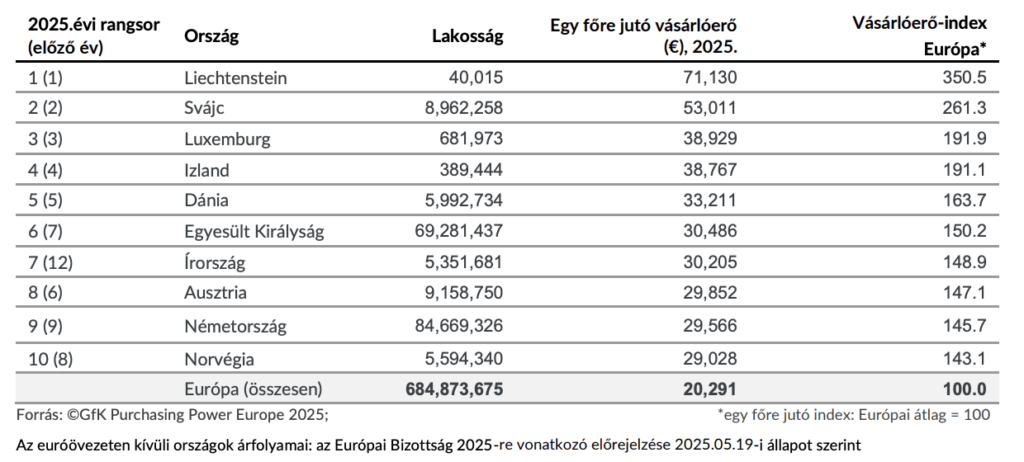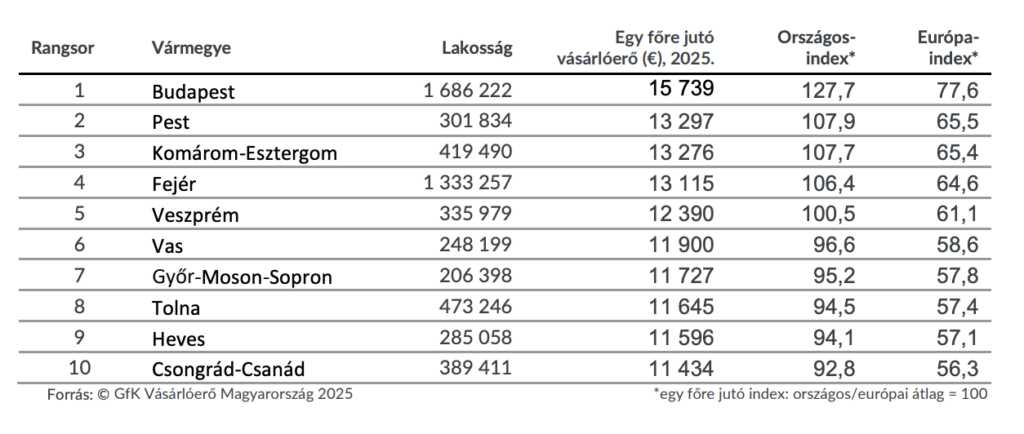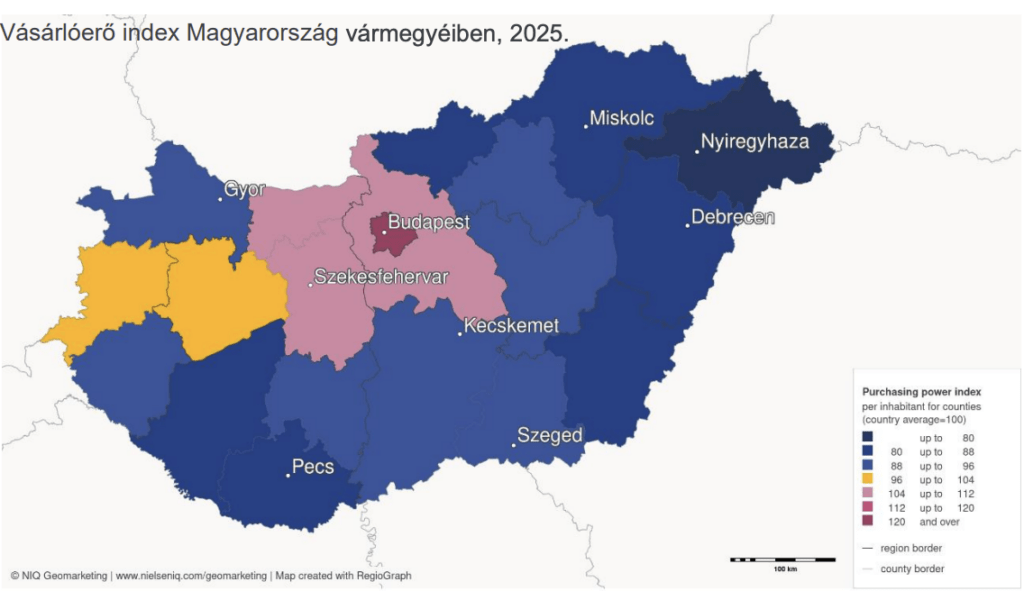GfK study: This is how European commercial purchasing power has changed in 2025
In Hungary, the average purchasing power per capita increased by 6 percent to 12,323 euros, which corresponds to 60 percent of the European average. This means that we continue to maintain our 30th place in the European comparison.
GfK Purchasing Power 2025 study is now available for the whole of Europe
The average purchasing power per capita in Europe increased to 20,291 euros in 2025. However, the differences between the 42 countries analyzed remain significant: in Liechtenstein, Switzerland and Luxembourg, net income is much higher than in the rest of Europe, while it is lowest in Belarus, Kosovo and Ukraine. Ireland is among the big winners this year, moving up five places in the overall European ranking. These results are revealed in a new study, NIQ Purchasing Power Europe 2025, which is now available.
The total purchasing power of Europeans in 2025 is €13.9 trillion. This is the total income available for food, housing, services, energy costs, private pensions, insurance, holidays, mobility and consumer purchases. This represents an average purchasing power of €20,291 per capita, a nominal increase of 4.0% compared to the previous year. However, the actual amount available to consumers for purchases and savings varies greatly from country to country and also depends on how consumer prices develop in 2025.
As in previous years, Liechtenstein is in first place in the purchasing power ranking in 2025 with a significant advantage. The purchasing power per capita of Liechtenstein residents is 71,130 euros, which is 3.5 times the European average. Switzerland and Luxembourg follow in second and third place. The purchasing power per capita of the Swiss is 53,011 euros, which is 2.6 times the European average, while the net disposable income of Luxembourgers is 38,929 euros per capita. This is more than 1.9 times the European average.
Purchasing power in Europe (top 10 countries)

The top 10 countries on the list have very high purchasing power per capita, exceeding the European average by at least 43 percent. The big winner is Ireland, which has moved up five places this year to seventh place, with a purchasing power per capita of €30,205. The neighboring United Kingdom also improved one position and is now in sixth place in the ranking, while Austria and Norway each dropped two places. The Netherlands, however, fell out of the top 10 this year and is in twelfth place with a purchasing power per capita of 28,535 euros.
In total, 16 of the 42 countries analyzed are above the European average, while 26 countries have a purchasing power per capita below the average – including Spain, which is slightly below the European average at 20,134 euros. As in previous years, Ukraine is the leader this year. Its residents have only 2,946 euros per capita, which is just over 15 percent of the European average.
Hungary: Purchasing power is highest in and around Budapest and west of the capital
Hungary ranks 30th out of the 42 European countries surveyed, maintaining its position from last year. With an average purchasing power of 12,323 euros per capita, Hungarians are 40 percent below the European average.
A look at the 20 counties in Hungary reveals that the five counties with above-average purchasing power were particularly able to defend their first place (including Budapest). All of them are located around the capital or further west. With a spending potential of 15,739 euros per capita, the capital is clearly in first place, nearly 28 percent above the national average.
Ranking County PopulationPurchasing power per capita (€), 2025.


With a net disposable income of 12,390 euros per capita, Veszprém is closest to the national average. There are changes in the ranking of the top 10 counties this year from second to eighth place. Pest jumped from fourth to second place, Komárom-Esztergom and Fejér counties slipped one place, while Tolna and Győr-Moson-Sopron exchanged places.
Related news
Retirement almost halves your income on paper – it’s worth keeping this in mind and taking steps
🎧 Hallgasd a cikket: Lejátszás Szünet Folytatás Leállítás Nyelv: Auto…
Read more >Germans Open to AI Agents in Shopping
🎧 Hallgasd a cikket: Lejátszás Szünet Folytatás Leállítás Nyelv: Auto…
Read more >Related news
40 secure jobs, sustainable solutions – new BURGER KING® in Csepel
🎧 Hallgasd a cikket: Lejátszás Szünet Folytatás Leállítás Nyelv: Auto…
Read more >Hétéves növekedési stratégiát jelentett be az Auchan
🎧 Hallgasd a cikket: Lejátszás Szünet Folytatás Leállítás Nyelv: Auto…
Read more >









